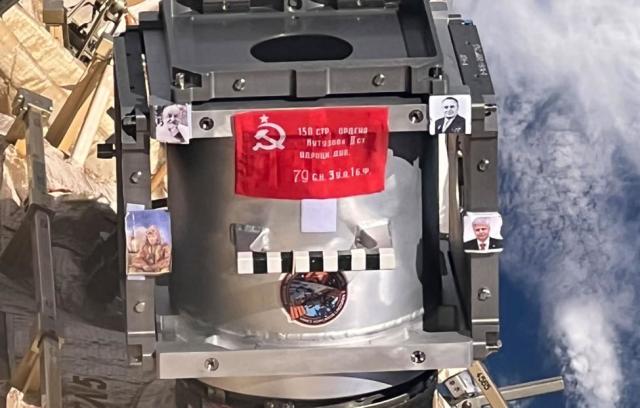According to the company's executive director Sergey Krikalev, the leak was registered both visually and by telemetry at the same time
MOSCOW, October 11. /tass/. The specialists were able to use the cameras to determine the exact location of the coolant leak of the external (backup) radiator circuit of the multipurpose laboratory module (MLM) "Nauka". This was stated to journalists by the executive director of Roscosmos for manned space programs Sergey Krikalev.
"There is video from both external cameras and cameras that were filmed through the porthole. It can be seen that the leak occurred from the pipeline through which the flexible highways are connected," Krikalev said.
According to the executive director of Roscosmos, the leak was registered both visually and by telemetry virtually simultaneously. The reason for the depressurization will be clarified.
Krikalev recalled that the radiator was delivered to the ISS in 2010, and installed in the summer of this year. "This radiator is designed for additional heat release, but really now such a heat release is not required. <...> There is no threat. This is an external circuit, which is designed to relieve heat, and, as I have already said, the circuit is duplicated. Even one of the two halves of this circuit is enough to release heat," the executive director stressed, adding that at the time of the leak, this circuit was not working (either one or the other half was working).
"Neither from the point of view of changing the flight program, nor from the point of view of the possibility of conducting scientific experiments, nor from the point of view of the comfort of the crew, no changes are felt," Krikalev said.
The reasons for the depressurization of the external (backup) radiator circuit of the multipurpose laboratory module "Science" are being investigated by the commission, Krikalev said.
"The Energia Commission is currently working (Rocket and Space Corporation Energia - approx. TASS), the industry that created this radiator," Krikalev said. According to him, the results of the analysis of the current situation will be linked to future plans. Recommendations can also be developed to restore the operability and use of this system, if necessary.
The external (backup) radiator circuit of the multipurpose laboratory module "Nauka", on which depressurization occurred, can be restored if necessary, Krikalev said.
He specified that the astronauts will take more detailed photos of the damage site during the spacewalk. "In addition, most likely, a recommendation will be given to cut off this leaky part of the additional radiator from the general system, so that, if necessary, we can restore the operability of the backup system of the regular circuit first, and then, let's see, maybe we will restore this [damaged] half of the radiator, if necessary," he said. Krikalev.
According to the executive director of Roscosmos, it is quite easy to restore the regular system, since its tightness is preserved. "We will understand the expediency and complexity [of restoring the tightness of the additional radiator] when we examine the leak zone in more detail and understand the reason," he explained.
Krikalev stressed that the radiator can give the possibility of a large heat release, if there are experiments requiring this. "This is a certain potential for the future," Krikalev said.
On October 9, Roscosmos reported a coolant leak from the external (backup) radiator circuit of the multipurpose laboratory module "Science". They clarified that the main thermal control circuit of the module is operating normally, providing comfortable conditions in the residential area. Roscosmos stressed that the crew and the station are not in danger.
Later, Oleg Kononenko, the special correspondent of TASS, deputy head of the Gagarin Space Research Center - commander of the Roscosmos cosmonaut detachment, reported that the leakage of coolant from the external (backup) radiator circuit of the multipurpose laboratory module (MLM) "Science" of the Russian segment of the ISS did not affect the crew's life, no experiments were postponed.

